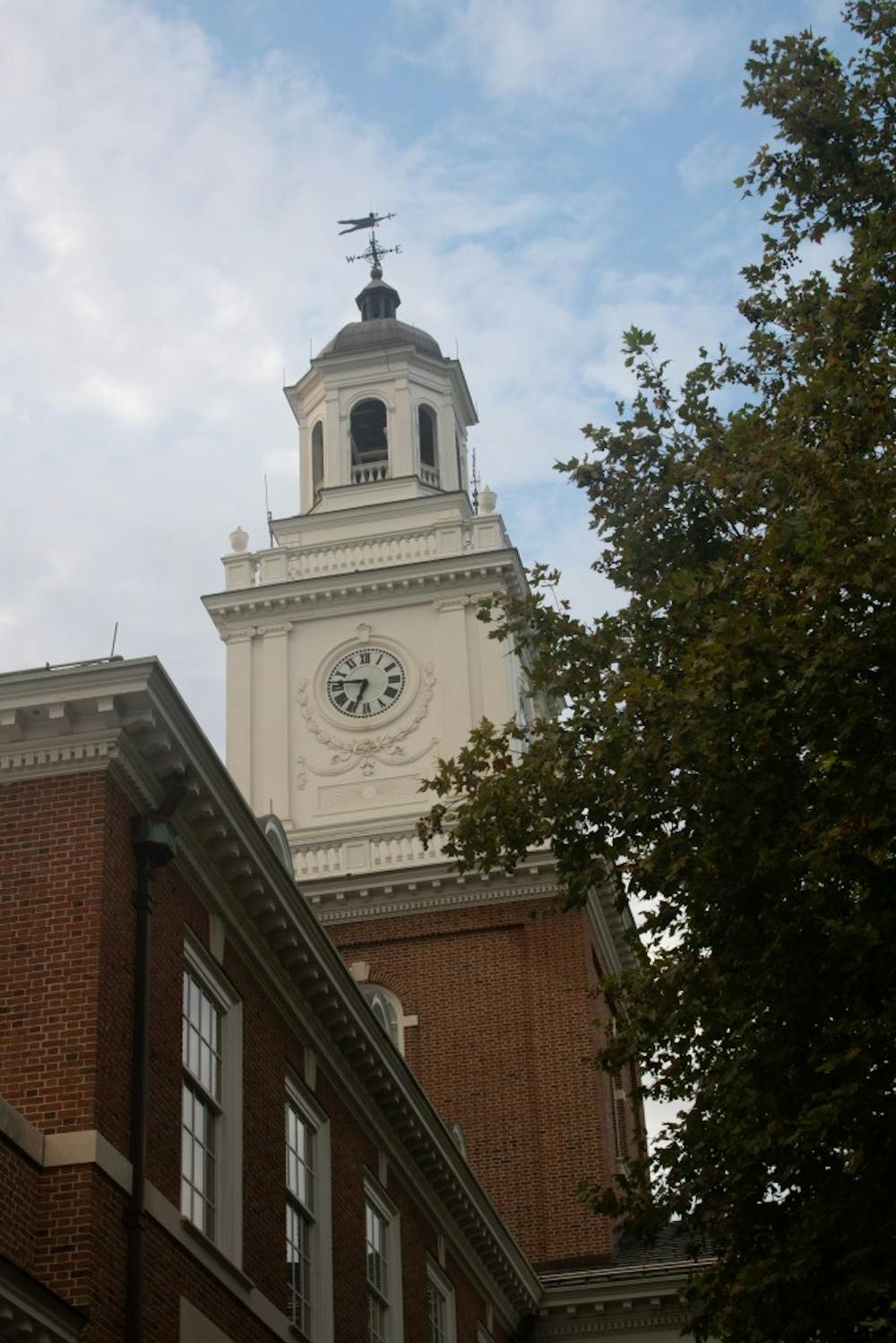The University has filed a lawsuit in the U.S. District Court for the District of Columbia against the U.S. Department of Homeland Security (DHS) and Immigration and Customs Enforcement (ICE) on Friday, July 10, according to University President Ronald J. Daniels.
The lawsuit seeks temporary and permanent injunction against DHS and ICE from implementing new visa regulations that would prevent many international students from entering or remaining in the United States.
Due to the University’s decision to go fully online following Nov. 17, the policy would bar international students at Hopkins to return to campus this fall and cause them to lose their foreign students’ visas.
Peer institutions, such as Harvard University and the Massachusetts Institute of Technology, have filed similar lawsuits. Other institutions, including the University of Chicago, Princeton University and Vanderbilt University, are filing a joint amicus brief in support of the Harvard lawsuit.
Bea Tran, a junior from Vietnam, reacted positively to the University’s filing of the lawsuit in an email to The News-Letter.
“When I first saw other schools file suit, I was very relieved to know that we are heard and supported,” she wrote. “Naturally, I am very happy to know that Hopkins is taking a stand too — it makes me feel validated specifically as a Blue Jay. This is the right thing to do as it affects students nationwide.”
The University’s suit criticized the ICE decision, arguing that it could exacerbate the current public health crisis.
“ICE’s decision reflects an effort by the federal government, consistent with President Trump’s public statements, to force universities to re-open in-person classes, irrespective of educators’ and experts’ assessments of the public health risks and the implications for international students both currently in the United States and abroad,” it wrote.
It also noted that the policy would potentially cause thousands of international students to be deported from the country.
In his email announcing the lawsuit, Daniels outlined other key portions of the University’s suit.
“Our suit alleges violations of the Administrative Procedure Act, due process, and the constitutional protections for universities’ academic freedom, and we will pursue it to the fullest extent,” Daniels wrote. “Our case presents issues not addressed in the other litigation and could help increase the likelihood of a national ban on enforcing this new rule.”
In an interview with The News-Letter, Student Government Association (SGA) Executive President Sam Mollin stated that he appreciated that the University’s lawsuit differed from its peer institutions.
“I was glad to see that instead of just filing an amicus brief that other universities did, they went above and beyond and started their own lawsuit in a new district court which from what I’ve seen, is the most helpful thing they could have done regarding lawsuits,” he said. “It’s really exciting to see Hopkins take a leading position here.”
Mollin also explained that SGA is currently working with international students to best serve them in the upcoming academic year.
Earlier this week, the University issued a statement opposing the new federal regulations, though not noting any concrete steps the University was planning to take. This led to the circulation of a student-led petition asking the University to form a single-credit in-person course to allow international students to return and/or stay in the United States.
Senior Tuna Çoluk, a student from Turkey, approved of the University’s decision to file a lawsuit.
“It shows that Hopkins truly cares. A lot of colleges right now are just saying that they’re going to make the whole semester hybrid so there’s no transition to online, but... the cases might get worse. We might have a campus outbreak,” she said. “The problem is not going to be solved until it’s guaranteed that we’re not going to be deported if everything goes online.”
Çoluk also noted that while the University could implement a schedule change, such as starting or ending early, to work around the regulation, she believes the decision to oppose the ruling was the best one.
Junior Huong Nguyen, a student from Vietnam, while approving of the University’s actions, expressed uncertainty about the outcome in an email to The News-Letter.
“I am very grateful that the school has taken legal action against ICE and in support of their students. That being said, I’m not celebrating yet,” she wrote. “I am still waiting on how Hopkins plans to protect their international students, those who plan on spending the semester in the US or in their home countries, if the suit fails.”
Senior Jamie Pui Chan, however, questioned the timing of the announcement, referencing the University’s prior contracts with ICE.
“Though I’m relieved that Hopkins has chosen to file a lawsuit against ICE, I still remain wary. Why does it seem like they only choose to take a stand when there is a serious threat to their profits?” she wrote. “I hope that this call for justice doesn’t stop with matters that directly affect us. I hope we can all recognize that this ICE announcement is part of a much larger and more deep-rooted problem.”





